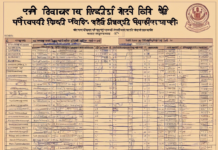The most common mistake people make in games is clutter. Clutter is not to be confused with a good strategy, but rather some unnecessary and unrewarding garbage that can really kill your game if you let it. Maybe the player is given a lot of money at the beginning of their turn, but there are no buildings or resources to spend it on yet.
Skipthegames cleveland is one of the best online casino game providers in the business and offers an unmatched level of gaming entertainment. Or maybe you let the player build a lot of buildings, but they don’t have anything to produce yet. Or maybe there is an objective, but it requires building a bunch of stuff first before it becomes available. Most often the problem is that you have too many resources (buildings or otherwise) available at any time for the player to decide what to do with.
Or sometimes everybody gets a card that gives them an extra point, so they finish their turn with four points and nothing to show for it. Sometimes you may want to give players more options after they’ve used all of their cards, but instead you just slapped something on the table without thinking about what effect it might have on gameplay as well as future turns.
5 Common Mistakes Everyone Makes In Games :
1. No one player is able to do anything useful.
There is nothing worse than being able to do nothing with your turn instead of doing something because you have no cards left. As a designer, you need to make sure that your players are always making decisions that can affect the outcome of the game. You want them to be actively working towards accomplishing a theme or objective, not just collecting resources and raising their score as fast as they can.
If I’m building up my score and suddenly an opponent is able to do something useful, there needs to be some kind of consequence for wasting my turn by doing nothing but filling my hand with cards.
2. Too many cards in the player’s hand.
This is a very common problem in small games. It’s tough to balance the game properly, especially if it’s a collaborative design like the one I designed for the Whistlestop Carnival, but one of the ways I solved this was by forcing players to discard down to four cards at each turn.
If there are way too many cards in your hand, you can’t play everything that you draw at once and would be better off playing one or two cards at a time so that you can think about whether they’re useful or not. You still want players to keep their hands full of useful cards, but you don’t want them paralyzed with indecision.
3. No use for building up cities and influencing the culture.
What if you can’t get to your TV? What if your neighbor is asleep and won’t hear the Raiders game? What if you don’t believe in anything like the “Chief of Police” or “Ghost Town mayor?” And what about those buildings that are all bolted down? Can I even use the Mayor’s office?
A lot of these problems can be resolved through your theme, but sometimes you may need something else to change up how the game plays. Make sure every player is acknowledging what other players are doing, and make sure there are enough win conditions so that it doesn’t always come down to who has a best score.
4. A too-low starting hand size.
If you can’t draw enough cards from your deck, you’re going to run out of things to do way too fast. It’s tempting to set the starting hand size really low because it means players will have to discard a lot once they’re out of cards for the turn. The last thing you want is for people trying to collect certain cards in order to build something or affect their strategy, only to discover that they can’t find any more of those cards anywhere in the deck.
You wouldn’t believe how often I’ve seen this happen at game nights. People complain that some games “don’t have enough variance” because they can predict what other players are going to do. Well, maybe that’s because they’ve played your game before and it doesn’t actually have enough variability to keep things interesting.
5. Everything is really easy in the beginning.
This is a tricky one because you don’t want to make the game too difficult at the beginning by having too few resources or not having enough pick-up cards. You also don’t want it to be too difficult because people might think that the game can only be played if they have the most expensive cards available, but you should still challenge them each turn so that they don’t keep throwing all of their cards away each turn and getting nothing accomplished.









